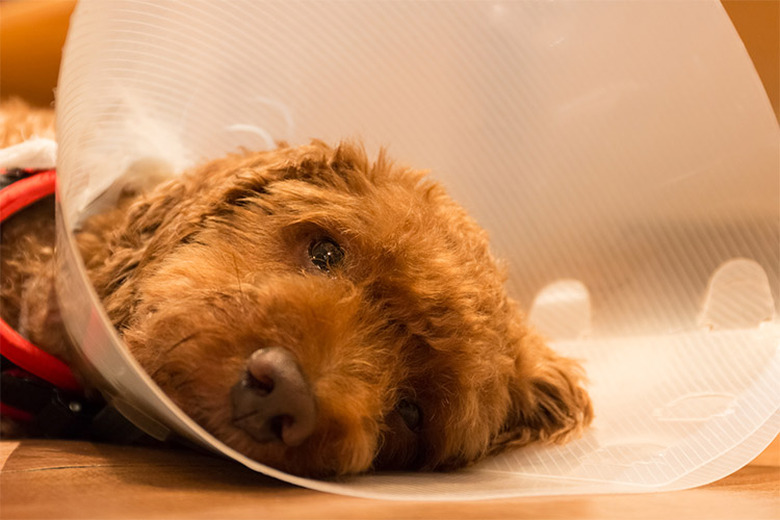What To Expect The Day After Spaying A Dog
Having your dog spayed helps to reduce the problem of pet overpopulation. Each year, millions of sweet dogs waiting for homes are put to sleep simply because there aren't enough homes. After your dog is spayed, she will need some extra care.
What to Expect
Your sweet girl just had a major surgery, so expect her to be lethargic and in need of lots of rest to recover. Veterinarians recommend keeping your dog confined in a small room or a crate where she can recover in peace. A full rest period of 18 to 24 hours is normal. She may seem groggy and even agitated as well as a little off balance because of the anesthesia. Climbing stairs or getting into a car can be a challenge and she will need your help.
Incision Site
Your dog will have a small incision site where the surgery occurred. It may be slightly red, but there should be no drainage of blood. Your veterinarian most likely will give your dog a small green tattoo next to the incision site, which signifies that she has been spayed. This symbol is universally recognized. Monitor your dog to make sure she is not licking at her incision site, as this could induce swelling, redness and infection. Many dogs will be sleeping for the first day after surgery. However, if your dog begin to lick, wearing an e-collar may be recommended by your dog's veterinarian.
Post-Op Care
The veterinarian most likely will prescribe pain medication to be taken for the first 24 hours after surgery. Many dogs will continue with normal eating habits on day two. The Sacramento SPCA recommends providing water in the evening after surgery. If you have any concerns regarding your dog's post-operative recovery, call your veterinarian.
By Pamela Miller
References
ASPCA: How Will Spaying Change My Dog?
Operation Pets: After Surgery – How to Help Your Pet Recover
About the Author
Pamela Miller has been writing for health, beauty and animal health/welfare publications for seven years. Miller holds a Bachelor of Science in Organizational Communication from MTSU.
Always check with your veterinarian before changing your pet's diet, medication, or physical activity routines. This information is not a substitute for a vet's opinion.
